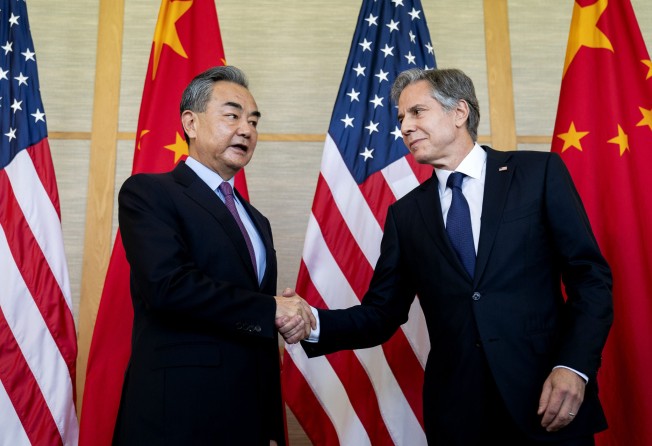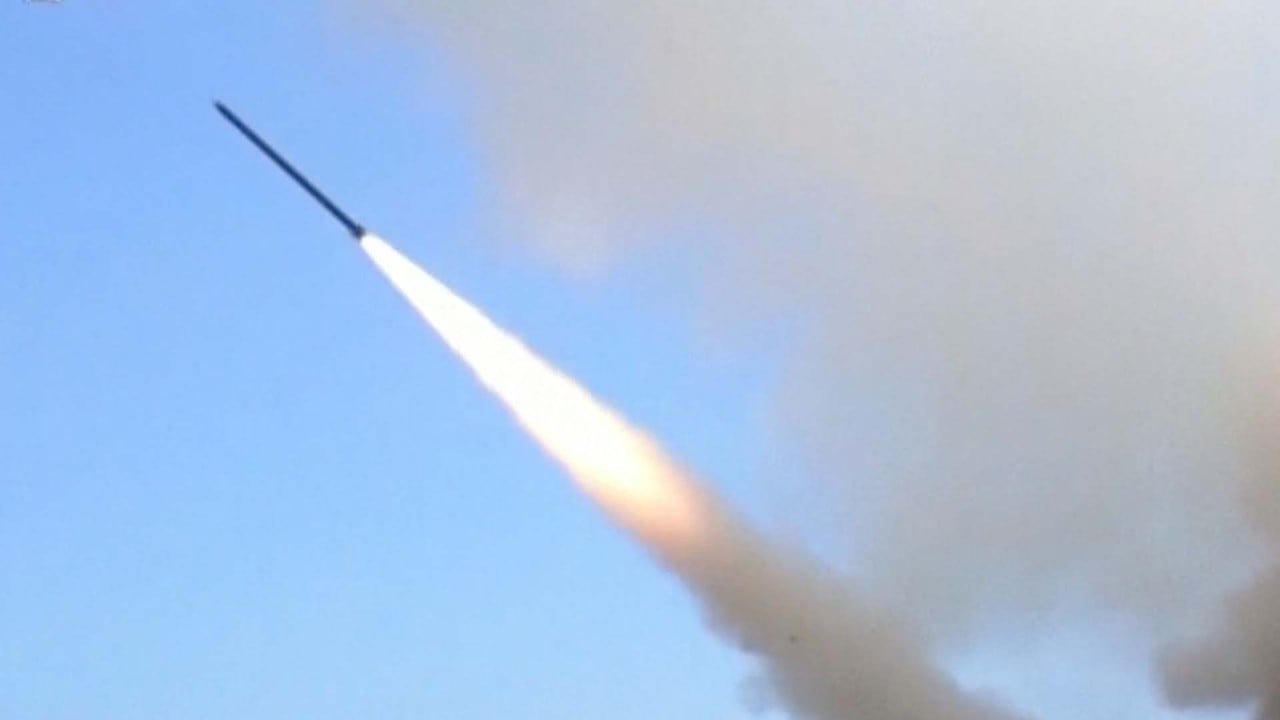
Major crisis averted in the Taiwan Strait – this time. But what happens next?
- Time will tell what the real impact is of Pelosi’s trip to Taiwan, which has earned her points at home but also allowed Beijing to ramp up military exercises near the island
- Importantly, Beijing’s show of force sets a precedent to counterbalance Taiwan’s pursuit of foreign support and will be repeated in the years to come

Despite the severe sabre-rattling by the Chinese media and interlocutors before US Speaker of the House Nancy Pelosi’s visit to Taiwan, Beijing’s reaction has been more moderate than its early threats suggested.
People can debate the extent to which the Chinese military exercises have changed the status quo on the ground. However, the US and China have been able to avoid a high-intensity, high-stakes military confrontation this time. And that should leave the world much to ponder.
Since reports in April of Pelosi’s potential trip, Beijing has left no stone unturned in conveying to Washington the potential consequences of the visit, including a fourth Taiwan Strait crisis, consisting of military exercises, and potential missile firings over the island.
On the US side, Secretary of State Antony Blinken reportedly informed his Chinese counterpart Wang Yi about the possible trip during their meeting in Indonesia in July. In this sense, communications between the two countries about the trip appear to have been unobstructed.

There is no doubt that Pelosi’s actions were controversial, to say the least. Many said the trip was not a good idea. Some suggested she could postpone it until the autumn, when it would have been much less sensitive given the political cycles in both the US and China.
However, her decision to proceed with the trip should be understood in the broader context of US-China relations and of partisan politics in the US. Letting China determine the foreign policy of the United States and the foreign visits of American leaders is unacceptable. Changing the trip would have made Pelosi and the Democratic Party vulnerable to attacks by Republicans, which is also politically untenable.
Despite warnings from Chinese media personnel to deter the trip, it was evident that Beijing was not going to launch a major military escalation that could lead to direct US military retaliation or intervention.
China is more than three months closer to the Communist Party’s 20th National Congress than in April. And Beijing’s overwhelming priority is domestic stability. Having witnessed the Russian quagmire in Ukraine, Beijing was not going to start a war that may not end by the autumn, when the congress is expected to be held.
For people who follow US-China relations closely, there have been signs of positive interactions between the two countries in recent months, including China’s proposal of eight areas for cooperation presented during the Blinken-Wang meeting in Indonesia. The gesture is likely to have been short term and tactical, primarily aimed at stabilising bilateral relations before the party congress.
Nevertheless, discussions had also been ongoing for a potential leadership summit in November. So far, there have been few indications that China will scrap these efforts because of Pelosi. The fact that President Xi Jinping held a phone call with US President Joe Biden four days before Pelosi’s trip, with the knowledge that she would most likely be going, is another clear sign that China did not want it to derail bilateral relations.
Beijing’s response has, of course, been harsh, but nothing unexpected. Missile flyovers, military exercises, cancellation of military-to-military dialogues, and suspension of other dialogue have either been forewarned or are popular tools in Beijing’s toolkit that have been repeatedly used in the past.
It will be interesting to observe how soon the episode will pass and how quickly China hosts the next round of senior-level meetings with the US. They would be much more telling about the damage done by Pelosi’s visit on US-China relations than the military exercises alone.
Much has been said about the military exercises – their intrusion into Taiwanese territorial waters, the missiles fired over Taiwan, the de facto blockade, the threat to trade routes, the anti-access and area denial strategy against the US and Japan, as well as the “rehearsal for unification”. All those are important.
However, the most important long-term ramification is China’s attempted establishment of a precedent. The successful and uninterrupted military exercises set a precedent on this type of activity to counterbalance Taiwan’s pursuit of foreign support and will be repeated in the years to come. Given Beijing’s rejection of the “median line” of the Taiwan Strait and the denial of the Strait as international waters, its encroachment on the island is only increasing.
It will be interesting to debate who has come out of this episode as the winner or the loser. For the US and China, having been able to avert a major military escalation and crisis is itself a significant achievement.
Taiwan has gained stronger support from US Congress, especially Pelosi, but at the cost of Beijing inching forward in its salami-slicing, this time in the military realm. China appeared to be the loser before the military exercises commenced. But, since then, its reactions have been applauded domestically.
The biggest loser in this whole event might be the Chinese media personnel who had tried to deter Pelosi’s trip with a war of words, threats and coercive messages. Those messages apparently went too far, backing Beijing into a corner in front of its domestic audience. It is hoped that such voices will be put under a tighter leash in the future, and that propaganda does not drive China’s foreign policy.
Yun Sun is a senior fellow and co-director of the East Asia Programme and director of the China Programme at the Stimson Center
